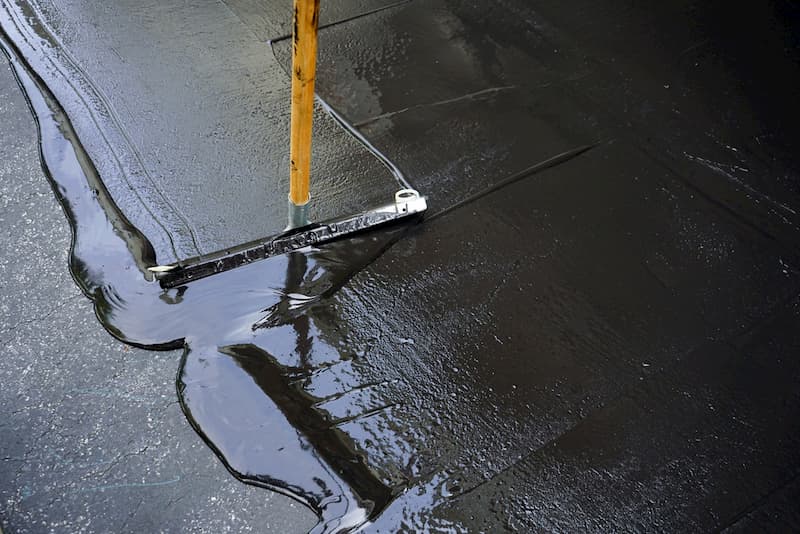Cold Mix Asphalt Vs. Hot Mix Asphalt: Which Is Right for You?

Composition Distinctions
Cold mix and hot mix asphalts vary significantly in their make-up, with distinct attributes that influence their performance and applications. Cold mix asphalt is produced by emulsifying the asphalt binder with water and an emulsifying representative before mixing it with aggregate. This approach permits the asphalt to be workable at lower temperatures, making it perfect for short-lived repairs and for use in chillier weather. Hot mix asphalt, on the various other hand, is made at high temperature levels, normally in between 300-350 ° F, which aids to achieve better compaction and an extra resilient end product. The hot mix asphalt manufacturing process involves heating the aggregate and asphalt binder individually prior to incorporating them at the asphalt plant.
Moreover, cool mix asphalt often tends to be much less thick and extra flexible than hot mix asphalt. This versatility makes it better suited for areas with greater degrees of motion, such as driveways or roads with rush hour. On the other hand, hot mix asphalt is known for its high sturdiness and resistance to rutting and breaking, making it a preferred choice for highways and high-traffic roadways where durability is essential.
Setup Process Differences
The procedure of setting up cold mix and hot mix asphalt shows notable differences in their requirements and procedures. In comparison, hot mix asphalt requires an extra elaborate setup process. Due to the home heating requirements, hot mix asphalt setups are commonly brought out by specialists with specific devices, making certain a more structurally audio and permanent result.
Resilience and Long Life Factors
When considering asphalt choices, toughness and long life are vital aspects to assess for lasting pavement efficiency. Warm mix asphalt (HMA) is known for its exceptional sturdiness and long life.
In terms of long life, HMA normally surpasses CMA as a result of its remarkable strength and resistance homes. HMA sidewalks have a longer life span, needing less constant repair work and upkeep, which can equate to cost financial savings over time. Furthermore, HMA sidewalks are a lot more conveniently adjustable to fulfill certain job needs, even more boosting their sturdiness.
Price Factors To Consider
Taking into consideration the economic effects is a crucial aspect when assessing the choice between warm mix asphalt (HMA) and cold mix asphalt (CMA) for sidewalk jobs. While the preliminary cost of hot mix asphalt is generally higher than that of cold mix asphalt, HMA frequently supplies an extra cost-effective solution in the lengthy run due to its premium longevity and longevity.
In addition to material prices, it's vital to take into consideration the expenditures associated with setup and upkeep when comparing HMA and CMA. Eventually, the decision between HMA and CMA need to take into account not just the preliminary cost however additionally the long-term monetary ramifications to determine the most affordable choice site link for the details sidewalk job.
Environmental Influence Comparison
Contrast of the environmental effects in between warm mix asphalt (HMA) and cool mix asphalt (CMA) discloses unique distinctions in sustainability techniques. HMA manufacturing needs high temperatures, leading to increased energy consumption and greenhouse gas emissions.
Furthermore, making use of CMA commonly involves reusing existing asphalt sidewalk, promoting resource preservation and reducing the quantity of waste sent out to garbage dumps. This recycling facet additionally improves the sustainability of CMA compared to HMA. Overall, when considering the environmental effect, CMA becomes an extra eco sustainable choice due to its reduced energy requirements, lowered emissions, and the possibility for recycling existing materials. By choosing for CMA over HMA, road construction tasks can add favorably to environmental conservation initiatives.
Verdict
To conclude, the read review option in between cold mix asphalt (CMA) and warm mix asphalt (HMA) relies on various elements such as make-up, installation process, durability, durability, expense, and ecological impact. asphalt patch repair. While CMA supplies a cost-efficient and fast solution for minor repair services, HMA makes sure premium longevity and longevity dig this for rush hour locations. Consider these aspects very carefully to figure out which kind of asphalt is the best choice for your paving requires

Thinking about the economic implications is a critical aspect when reviewing the choice in between hot mix asphalt (HMA) and cool mix asphalt (CMA) for pavement projects. While the preliminary price of hot mix asphalt is commonly higher than that of chilly mix asphalt, HMA usually provides a more cost-efficient service in the long run due to its remarkable durability and longevity. cold mix asphalt.Comparison of the environmental influences between warm mix asphalt (HMA) and cool mix asphalt (CMA) reveals unique distinctions in sustainability techniques.In final thought, the selection in between cold mix asphalt (CMA) and hot mix asphalt (HMA) depends on various elements such as make-up, setup procedure, sturdiness, durability, cost, and ecological impact